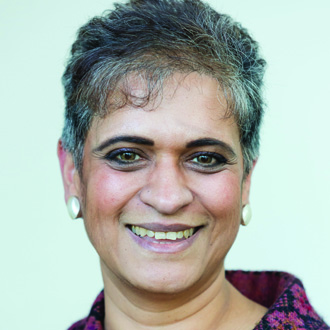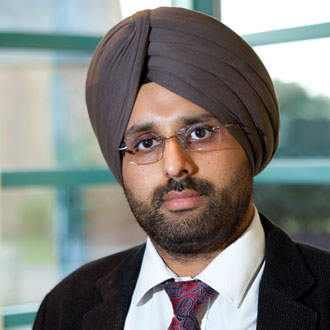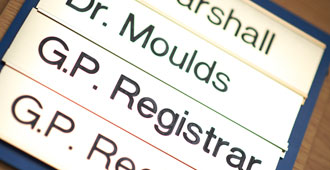
YES The system creates safe and competent doctors
GP trainees currently have the shortest specialty training but the broadest curriculum of all the medical specialties.
The RCGP has long campaigned for enhanced GP specialty training, to extend the programme for an extra year with more time in a general practice setting.
Our calls to enhance training have not been made because current GPs, and GP trainees, are falling short in any way, but because the amount of work expected of GPs has risen exponentially in quality and depth over recent decades. We feel we can just about fit everything in, but it is becoming increasingly difficult to do so and this can put a strain on GP trainees.
Nevertheless, as it stands, the training programme creates safe doctors who are fit to practise independently. It is approved by a panel of medical educators and educational specialists at the GMC, which evaluates it regularly. We also recently asked the Health Professional Assessment Consultancy to review the MRCGP assessment independently to ensure it is up to date.
The curriculum is regularly updated to reflect changes in general practice
The three-part MRCGP process that determines a GP’s fitness to practise independently, safely and competently in the UK is world renowned as a robust, comprehensive exam, and those who pass it have clearly demonstrated they meet the highest standards to deliver patient care. The training curriculum is regularly updated to reflect the changing environment of modern general practice.
GP trainees’ performance is consistently evaluated by experienced GP trainers throughout their three years of training – at least 18 months of which must be undertaken in general practice.
Through the applied knowledge test (AKT), trainees demonstrate their competence to guarantee safe standards of patient care. The clinical skills assessment (CSA), which evaluates how trainees deal with a range of scenarios within general practice, is rigorously quality assured to ensure it is as typical of an NHS GP clinic as it can be.
GP specialty training needs to be longer, as the workload is becoming increasingly complex; in the meantime our priority is to ensure trainees are adequately supported. More investment is necessary but more also needs to be done to provide pastoral support and encourage peer support to help trainees develop resilience early in their career.
Professor Kamila Hawthorne is vice-chair for professional development at the RCGP

NO Training has failed to keep up with changes
Last year, a House of Lords report declared the GP model was no longer fit for purpose.1 NHS England’s Five Year Forward View advocates alternative models of primary care.2 Indeed, the GP’s working day has undergone a sea change in the recent past. The nature and complexity of our consultations have changed greatly and our gatekeeping role has become much more focused on reducing prescribing costs, referrals and admissions.
Training is now all about maintaining an e-portfolio, and an unhealthy obsession with passing exit exams. Much time is spent on assessment box-ticking. Yet most of us can find DVLA regulations or minute details of guidelines when needed. There really is little value in trainees memorising such things.
The RCGP has declared that 10-minute consultations are unfit for purpose.3 Yet it persists with an artificial assessment based on 10-minute ‘ideal’ consultations, which focus disproportionately on certain competencies, and fails to factor in realities of the job, such as working in challenging and deprived areas.
Many newly qualified GPs are opting for locum and out-of-hours sessions, yet the 2004 contract and resulting changes to training perversely resulted in reduced exposure to out-of-hours work.
There is an unhealthy obsession with passing exit exams
Meanwhile, all the hoops trainees have to jump through, combined with the restrictive nature of the new 2017 contract, leave little time for exposure to practice business and management.
There is immense pressure to pass AKT and CSA tests, which take over trainees’ lives. The prohibitive cost of these examinations only adds to the strain, and hampers efforts to attract doctors to the workforce.
Our relationships with patients are changing. Continuity of care and the ability to absorb uncertainty and risk are being diluted. We are increasingly risk averse and dictated to by guidelines, less reliant on our clinical judgement and ability to make exceptions – qualities and competences we are consequently failing to pass on to our future workforce.
Last year, the RCGP itself decided to review the MRCGP’s fitness for purpose but we have yet to see its conclusions.4
Whatever the outcome, I believe it is high time we took stock and reviewed the needs, demands and wants to ensure that GP training stands the test of time.
Dr Kamal Sidhu is a GP trainer in Blackhall, County Durham
References
1 House of Lords. Select Committee on the long-term sustainability of the NHS. Report of session 2016-17.
2 NHS England. Five Year Forward View (2014).
3 RCGP. Press statement November 2017.
4 Nash, S. RCGP reviewing whether MRCGP exam is ‘fit for purpose’. Pulse July 2017.
















